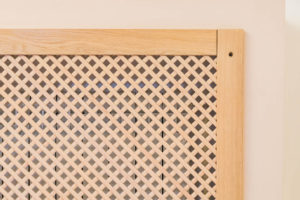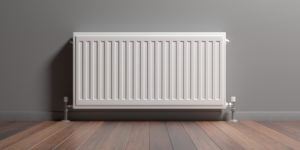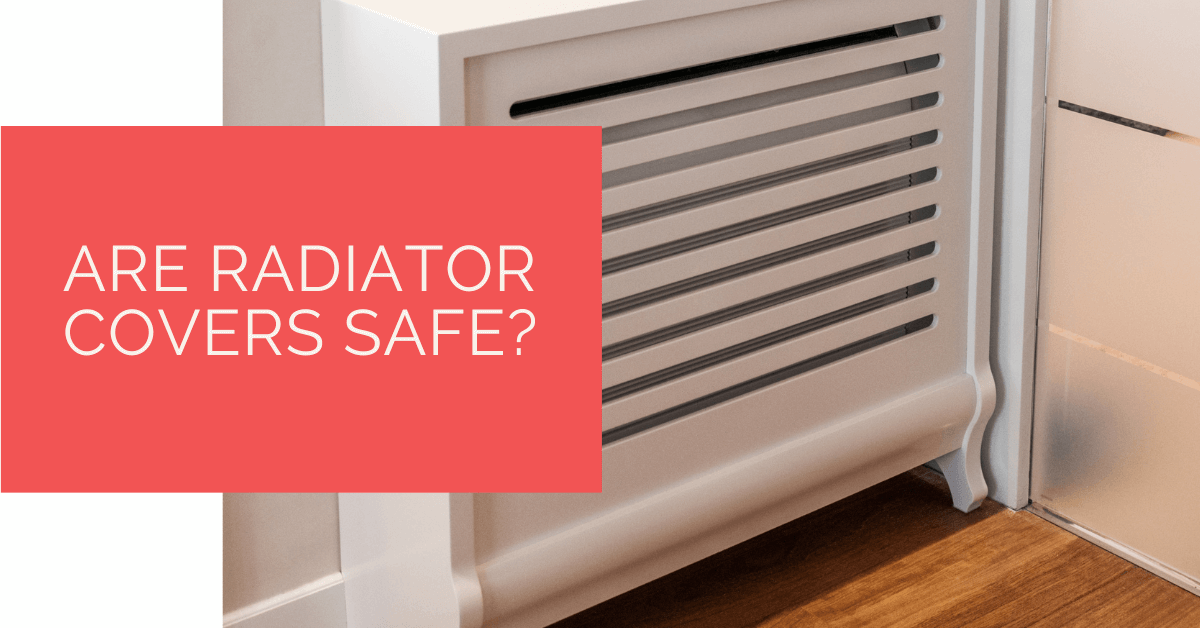Radiator covers are a popular way to add style to your home while providing extra protection for your radiators. But are they safe? In this article, we will look at the safety concerns associated with radiator covers and provide tips for keeping your family safe.
Contents
- 1 Key Takeaways
- 2 What Radiator Covers Are and What They Do
- 3 The Benefits of Using Radiator Covers
- 4 Safety Concerns with Radiator Covers and How to Address Them
- 5 Tips for Keeping Your Family Safe
- 6 Installation Tips for Proper Use of A Radiator Cover
- 7 Different Types of Radiator Covers
- 8 FAQs About Radiator Cover Safety
- 9 Heat Pump Source: Reliable Heating and Cooling Solutions
- 10 Conclusion
Key Takeaways
- Radiator covers serve the dual purpose of adding style and providing extra protection for radiators. They can also help insulate your home and save on energy bills.
- Safety concerns with radiator covers include the risk of fire if not made from fire-resistant material and overheating the radiator due to poor ventilation. Proper installation and material selection are crucial for safety.
- To ensure safety when using radiator covers, choose fire-resistant materials, securely attach the cover, keep it out of reach of children and pets, and ensure proper ventilation to prevent overheating.
What Radiator Covers Are and What They Do
Radiator covers are panels that fit over your radiator to provide a decorative element and an additional layer of protection. In some cases, they may also help to insulate your home by trapping heat in the radiator. This can save you money on your energy bills, as well as make your home more comfortable during the colder months.
There are a few different materials that radiator covers are made from, including wood, metal, and even plastic. Some covers are very simple in design, while others are more elaborate. No matter what style you choose, it is important to make sure that the cover is properly sized for your radiator and that it is securely attached.
The Benefits of Using Radiator Covers
There are a few benefits to using radiator covers in your home. First, they can provide an extra layer of protection for your radiators. This is especially important if you have young children or pets who might accidentally knock into the radiator and get burned.
Second, they can help to insulate your home by trapping heat in the radiator. This can save you money on your energy bills and make your home more comfortable during the colder months.
Finally, they can add a decorative element to your home. If you choose a cover that is made from wood or metal, it can even help to improve the overall look of your room.

Safety Concerns with Radiator Covers and How to Address Them
One of the biggest safety concerns with radiator covers is the risk of fire. If the cover is not properly installed or if it is not made from fire-resistant material, it could catch fire and spread to other parts of your home. They can also be a choking hazard for small children and pets, so it is important to keep them out of reach.
Another safety concern is that they can trap heat inside the radiator, which could cause it to overheat and break. This can lead to serious damage to your home and even injuries. To avoid this, make sure that the cover you choose has ventilation holes or slots that will allow air to circulate.
Tips for Keeping Your Family Safe
To help keep your family safe, when you buy a radiator cover it is important to choose a one that is made from fire-resistant material, such as metal or glass. You should also make sure that the cover is properly installed and securely attached to the radiator. If you have small children or pets, be sure to keep the cover out of their reach. Additionally, make sure that the cover has ventilation holes to allow air to circulate and prevent the radiator from overheating.
Installation Tips for Proper Use of A Radiator Cover
If you are installing a radiator cover, it is important to do so correctly in order to avoid any safety hazards. First, make sure that the cover is the proper size for your radiator and that it will not impede the flow of air. Second, attach the cover securely to the radiator using screws or brackets. Finally, drill ventilation holes in the cover to allow air to circulate and prevent the radiator from overheating.
Different Types of Radiator Covers
- Cane: A cane radiator cover is made from woven rattan or wicker and has a lattice-like design.
- Ceramics: Made from fired clay and are often decorated with patterns or images.
- Glass: Made from tempered safety glass and can be clear or tinted.
- Metal: Usually made from aluminum, steel, or copper.
- Plastic: The most affordable option but they are not as durable as other materials.
- Wood: Made from a variety of hardwoods, such as oak or maple.

FAQs About Radiator Cover Safety
Are Radiator Covers Safe?
When installed correctly, radiator covers are safe to use in your home. However, there are a few safety concerns that you should be aware of. First, if the cover is not made from fire-resistant material, it could catch fire and spread to other parts of your home. Second, they can trap heat inside the radiator, causing it to overheat and break. To avoid these hazards, make sure that the cover you choose is made from fire-resistant material and has ventilation holes to allow air to circulate.
What Are the Benefits of Using Radiator Covers?
Radiator covers can provide several benefits for your home. First, they can help to insulate your home by trapping heat in the radiator to improve efficiency. Second, they can add a decorative element to your room. Finally, if you choose a cover that is made from wood or metal, it can even help to improve the overall look of your room.
Do I Need to Drill Ventilation Holes in The Cover?
It is important to drill ventilation holes in the cover to allow air to circulate and prevent the radiator from overheating. Additionally, make sure that the cover you choose is made from fire-resistant material.
How Do I Attach the Radiator Cover to The Radiator?
Radiator covers can be attached to the radiator using screws or brackets. Additionally, make sure that the cover you choose is properly sized for your radiator and will not impede the flow of air.
What Are Some Tips for Choosing a Radiator Cover?
When you invest in a radiator cover, it is important to consider several factors. First, you should decide what material you want the cover to be made from. Second, you should choose a cover that is properly sized for your radiator. Finally, make sure that the cover has ventilation holes to allow air to circulate and prevent the radiator from overheating.
Do Some Radiator Covers Improve Efficiency?
Radiator covers can help to improve the efficiency of your radiator by trapping heat in the radiator. Additionally, if you choose a cover that is made from metal or glass, it can help to reflect heat back into the room.
Heat Pump Source: Reliable Heating and Cooling Solutions
At Heat Pump Source, we take pride in our unwavering commitment to serving the UK with top-tier HVAC solutions. From the efficiency of heat pumps and the cool relief of air conditioning to the warmth of boilers, radiators, and underfloor heating, our dedicated team is always at the forefront of innovation. We understand the unique needs of every household and business, and we strive to provide dependable health and cooling products and services that are tailored just for you. Ensuring your comfort and satisfaction is our utmost priority. Whether you have questions, need guidance, or require support, we’re always here to assist. Please don’t hesitate to contact us; we’re eager to be of service.
Conclusion
By following these tips, you can help ensure that your radiator cover is safe and effective. Radiator covers can add an extra layer of protection and insulation to your home, as well as improve its appearance. However, it is important to choose the right cover and install it properly to avoid any safety hazards.
About the Author
At Heat Pump Source, our articles are the product of a collaborative effort among a team of highly skilled HVAC experts. Our dedicated professionals, hailing from diverse backgrounds in heating, ventilation, air conditioning, and refrigeration, contribute their extensive knowledge and experience to every piece of content. This multidisciplinary approach ensures comprehensive coverage. Our commitment is to deliver authoritative, reliable, and tailored advice to meet the unique needs of every household and business across the UK.

